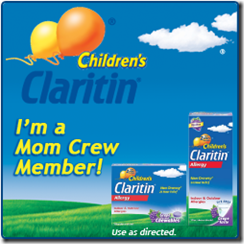Los Angeles, CA – March 7, 2011 – The Children’s Project is pleased to announce that the Sistah Connection, a peer-to-peer breastfeeding support system designed for African-American women, is available online for the first time at http://www.
Pioneering breastfeeding program The Sistah Connection was created in 2005 by the Riverside County Department of Public Health WIC (Women, Infants and Children) Nutrition Program in California with the guidance of Dr. Gerald Newmark, author of How To Raise Emotionally Healthy Children and the head of The Children’s Project. The unique system has now become one of the most successful breastfeeding projects in the United States.
The five critical emotional needs of children detailed in Dr. Newmark’s book – the need to feel respected, important, accepted, included and secure – provide the structure to the curriculum in the 10-part Sistah Connection series. A copy of the book, How To Raise Emotionally Healthy Children, is provided to each new mother participating in the Sistah Connection.
“Being a relaxed, happy person who enjoys life is one of the greatest gifts a parent can give to a child, and is one of the most important attributes a parent contributes to a child’s sense of security,” said Dr. Newmark. “This is vital to a child’s sense of security all the time, but especially during the breastfeeding period.”
When the Riverside County Department of Public Health started the program in 2005, there was a 2-month exclusive breastfeeding rate for African American women in Riverside County of 16.66%. By January 2011, the 2-month exclusive breastfeeding rate for African American women rose to 36.5%, an increase of 119%. (The term “exclusive breastfeeding” means feeding infants only breast milk without added formula or solid food, a practice now recommended by all experts in the field.)
“Mother to mother support is the key to our success,” states Laurie Haessly, Public Health Program Director for the Riverside County Department of Public Health WIC Program. “With this project, we have created a community of breastfeeding moms who come together regularly to share their challenges and the joys of motherhood. The concepts found in How To Raise Emotionally Healthy Children have been the backbone in helping new mothers feel competent in their new role as mother. Feeling confident is the key to breastfeeding success. We are extremely proud of the significant increase in exclusive breastfeeding rates we have seen with our African-American mothers. The rates are unheard of elsewhere in the U.S.”
The Surgeon General’s most recent report on the issue, published last month, says that “breastfeeding protects babies from infections and illnesses that include diarrhea, ear infections, and pneumonia. Breastfed babies are also less likely to develop asthma, and those who are breastfed for six months are less likely to become obese. Mothers themselves who breastfeed have a decreased risk of breast and ovarian cancers."
African American women have the lowest breastfeeding initiation rates (28% vs. 54% for whites) and the lowest one-year breastfeeding duration rates (9% vs. 25% for whites). Because many African-American women do not breastfeed, the health problems that go along with not breastfeeding are high among African Americans. Childhood obesity is one such problem – recent guidelines from the American Academy of Pediatrics say that solid foods should not be given to infants before 4 months of age. Babies introduced to solid foods before 4 months of age were at six times the risk of being obese by age 3, according to a recent Harvard study in the journal Pediatrics.
The Breastfeeding Peer Counseling Project in Riverside County is a model for other communities to follow for all new mothers. In the Surgeon General’s Call to Action to Support Breastfeeding on January 20, 2011, the number one-recommended community action is to strengthen programs that provide mother-to-mother support and peer counseling.
The power of the peer group model has been recognized by several counties in California. The Riverside County project coordinator is now mentoring similar programs in Shasta, Sacramento, and Orange Counties as well as the Watts Health Foundation WIC Programs, to replicate this project.
Laurie Haessly expressed just how easily the program can be duplicated with all new mothers and how other communities can have the same success that Riverside County has seen. “The partnership we have had with the Newmarks’ and The Children’s Project has helped create breastfeeding as the norm in our County.”
The Riverside County WIC Program has distributed over 10,000 copies of How To Raise Emotionally Healthy Children to all new mothers. The book is available at cost for nonprofit schools, government programs and childcare organizations. For special pricing email The Children’s Project at info@
Dr. Newmark has worked with schools and youth for more than 30 years, and has held senior positions with the Rand Corporation and the System Development Corporation. He has conducted extensive educational projects with the Ford Foundation and the Los Angeles Unified School District. He is the author of several books, including This School Belongs to You and Me, and has received a Presidential Citation for his work in education. How to Raise Emotionally Healthy Children, now in its second edition and 5th printing, has sold 400,000 books to date, and is often distributed free of charge to parents by many cities, educational systems, hospitals and other institutions. For more information on The Children’s Project: www.
Disclosure: I did not write this post. I posted as I am an avid supporter of breastfeeding mothers.
No compensation was given, please see my disclosure policy for more information on my blogging practices.
































0 comments:
Post a Comment